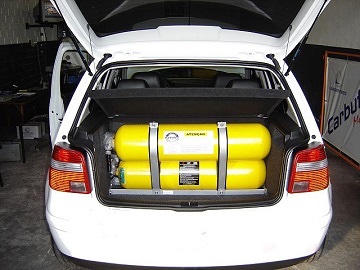In a groundbreaking move aimed at supporting Small and Medium Enterprises (SMEs), the Small and Medium Enterprises Development Agency of Nigeria (SMEDAN) has launched a major initiative to convert 100,000 vehicles to run on Compressed Natural Gas (CNG) within 18 months.
The announcement was made by the Director-General of SMEDAN, Dr. Charles Odii, during the unveiling of a CNG Conversion and Training Center in Abuja on Friday.
Speaking at the event, Odii emphasized that the new initiative would provide SMEs with affordable transportation options, reduce fuel costs, and promote environmentally friendly energy solutions.
“This collaboration with Rolling Energy and Pi-CNG is a step towards empowering our SMEs,” Odii said. “By adopting CNG, we can significantly reduce the high transportation costs businesses face, especially with the rising cost of traditional fuels following subsidy removal.”
The CNG Conversion and Training Center has been established with a capacity to convert up to nine vehicles daily, with a dedicated team of 20 technicians. This facility will not only provide vehicle conversions but will also offer training to young Nigerians in CNG conversion, maintenance, and repair.
Dr. Odii highlighted that SMEDAN’s contribution to the Pi-CNG initiative would see the agency roll out 10 percent of the target 100,000 vehicles for conversion.
“We are committed to ensuring that 10 percent of the 100,000 vehicles targeted for conversion come from our SMEDAN centers,” he added. “This is in line with our GROW Nigerian strategy, which focuses on providing SMEs with the guidance, resources, and workforce support they need.”
The GROW Nigerian strategy aims to offer small businesses the tools and infrastructure they need to thrive in a competitive environment. By adopting CNG as a fuel alternative, businesses can cut operational costs while embracing sustainable energy practices.
The CNG initiative has come at a crucial time for SMEs, who have been grappling with rising fuel prices. The cost of petrol has soared following the removal of fuel subsidies, forcing many businesses to rethink their transportation strategies.
The conversion to CNG is expected to provide significant savings, with CNG fueling costs estimated at less than N4,000 per vehicle, compared to over N60,000 for petrol. This will bring much-needed financial relief to businesses that rely on vehicles for the delivery of goods and services.
Toyin Zubair, the Executive Vice Chairman of the Presidential CNG Initiative, expressed his support for the initiative, noting that it would help Nigeria harness its vast natural gas resources to stimulate economic growth.
“Nigeria is home to one of the largest gas reserves in the world,” Zubair said. “By using this resource locally to power vehicles and industries, we can not only reduce costs but also create a cleaner, more sustainable environment.”
Zubair also emphasized the potential for collaboration between Nigeria and other regions in the exploration of renewable energy solutions. He pointed to the success of California in adopting cleaner energy alternatives and suggested Nigeria could learn from such examples.
Toks Omishakin, California’s Secretary of Transportation, praised Nigeria’s efforts in adopting CNG, describing it as an important step towards cleaner energy use. He urged stakeholders to look beyond CNG and invest in long-term renewable energy solutions like solar, wind, and hydrogen.
“I see tremendous opportunities for collaboration between California and Nigeria in exploring renewable energy solutions,” Omishakin said. “CNG is a great start, but we need to think long-term.”
The CEO of Rolling Energy, Mr. Mubarak Danbatta, explained that the conversion process would focus on safety and affordability, making it accessible to SMEs across the country.
“With less than N4,000, a vehicle can be fully fueled with CNG,” Danbatta said. “In comparison, over N60,000 is needed to fill a vehicle with petrol. This is a massive savings for small businesses.”
Danbatta also pointed out that CNG was not just for big businesses but for everyone, especially SMEs who struggle with high transportation costs.
“This initiative is designed to benefit everyone, not just the rich,” he stated. “Our partnership with SMEDAN and Pi-CNG is about ensuring that SMEs have access to affordable and reliable energy sources.”
SMEDAN’s involvement in the CNG conversion project is part of its broader strategy to improve the business environment for SMEs in Nigeria. In addition to the CNG initiative, the agency is upgrading Industrial Development Centers across the country to provide SMEs with affordable tools and energy tailored to their needs.
This includes providing equipment and training that can help businesses optimize production, reduce energy costs, and improve overall efficiency.
The move has been widely praised by stakeholders in the business community, who see it as a vital step towards reducing the operational challenges faced by small businesses. Many believe that with access to affordable fuel and better infrastructure, Nigerian SMEs can become more competitive and sustainable in the long run.
Experts also believe that the widespread adoption of CNG will not only support local businesses but will also help Nigeria reduce its reliance on imported fuel, saving foreign exchange and contributing to economic stability.

